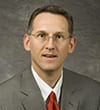Podcast: Download (43.7MB)
Subscribe: RSS

 Many Latter-day Saints worry whether they’re capable of reaching the celestial kingdom. Are these anxieties born of a sense of unworthiness, or is it that we just don’t think we can “do it all?” Author Alonzo L. Gaskill believes that such pessimism results from misunderstanding God’s great plan of happiness and what it is that the Lord actually requires of us. In this hope-filled book, he reviews the teachings of the scriptures and modern prophets to instill in readers a greater sense of God’s unfailing love and mercy and of His power and desire to exalt His children. Exaltation may be not only possible but probable!
Many Latter-day Saints worry whether they’re capable of reaching the celestial kingdom. Are these anxieties born of a sense of unworthiness, or is it that we just don’t think we can “do it all?” Author Alonzo L. Gaskill believes that such pessimism results from misunderstanding God’s great plan of happiness and what it is that the Lord actually requires of us. In this hope-filled book, he reviews the teachings of the scriptures and modern prophets to instill in readers a greater sense of God’s unfailing love and mercy and of His power and desire to exalt His children. Exaltation may be not only possible but probable!
Dr. Alonzo L. Gaskill was reared near Indepence, Missouri, and joined the Church in the fall of 1984. One year later, he served a mission to England. He has attended several schools and universities, earning a master’s degree in theology and a Ph.D. in biblical studies.
He has taught graduate and undergraduate religious education courses at the University of California (at both Berkeley and Santa Cruz) and Idaho State University. He was the director of the LDS institute of religion adjacent to Stanford University, and is an assistant professor of Church history and doctrine at Brigham Young University. He is a frequent presenter at BYU’s Campus Education Week and Know Your Religion seminars.
Dr. Gaskill and his wife, Lori, are the parents of four children and reside in Payson, Utah.
This book is available through the FairMormon Bookstore here.
You may also be interested in his blog here.
The views and opinions expressed in this podcast may not reflect those of the Church of Jesus Christ of Latter-day Saints or that of FairMormon.

Great podcast. Some refreshing views of salvation which certainly gel with me. Being a student of the NDE phenomenon, the Love of God is manifest to those who encounter him on the “other side”, irrespective of what they may have believed in this life. I believe that we have created religions that are ego based, that do not capture the true essence of God. Finally, this is changing, thanks to those who are tutored by the Spirit, both within and outside of the LDS faith.
Thank you. Brother Gaskill was a great interview. He is very positive concerning the Savior’s atoning sacrifice in it’s ability to save all you will come unto Him.
I have not yet read Brother Gaskill’s book, but the title suggests some sort of Pascal’s wager. I wonder if Brother Gaskill would care to comment this. To me a Christian life should not be motivated in even the slightest way by playing the “odds.”
Also, in addressing the idea of “good odds,” Brother Gaskill almost exclusively referenced the doctrine that tells us the population of exalted people will be totally dominated by children who died before reaching the age of accountability and people who never had a chance to hear the gospel during their mortal lives. I don’t see what this has to do with the concerns of his intended audience (current members) or whether or not they rejoice in this.
Unlike infants, the probability of adult members getting to the Celestial kingdom is a conditional one, unless one is saying it is 100% certain for them also (Universalism). To say it isn’t is to make a sham of the solemn covenants made in the temple that entail specific temporal responsibilities and obligations that must be met.
Not only this, I am sure my patriarchal blessing is not unique when it ends with:
“Now these blessings are contingent upon your obeying each and every one of your Heavenly Father’s commandments, and upon your serving Him with all your strength, mind and might and upon your enduring to the end of your days.”
I got the feeling that Brother Gaskill was taking personal liberties with his hermeneutics. He and Ned started off gently decrying Mormon folk beliefs (without specifically naming any) and went on to imply that they had the correct understanding of true doctrine. But what I heard was a lot of very selective and biased proof-texting from scripture and = general authority statements that would be easy to slant towards works. By what authority does Brother Gaskill make his case in the prophet, seers and revelators who have left records that do indeed slant the other way?
Finally, when referencing folk beliefs it would be, as a matter of integrity, to be more specific and to acknowledge where they came from, especially if they are a teaching of a prophet. If they were then the burden of those who claim it is just his folk belief – his outdated opinion – to state that clearly.
D&C 132: 8 Behold, mine house is a house of order, saith the Lord God, and not a house of confusion.
What is his purpose here? How much of it is about increasing the odds that people will just stay active while they are alive?